ZenTao
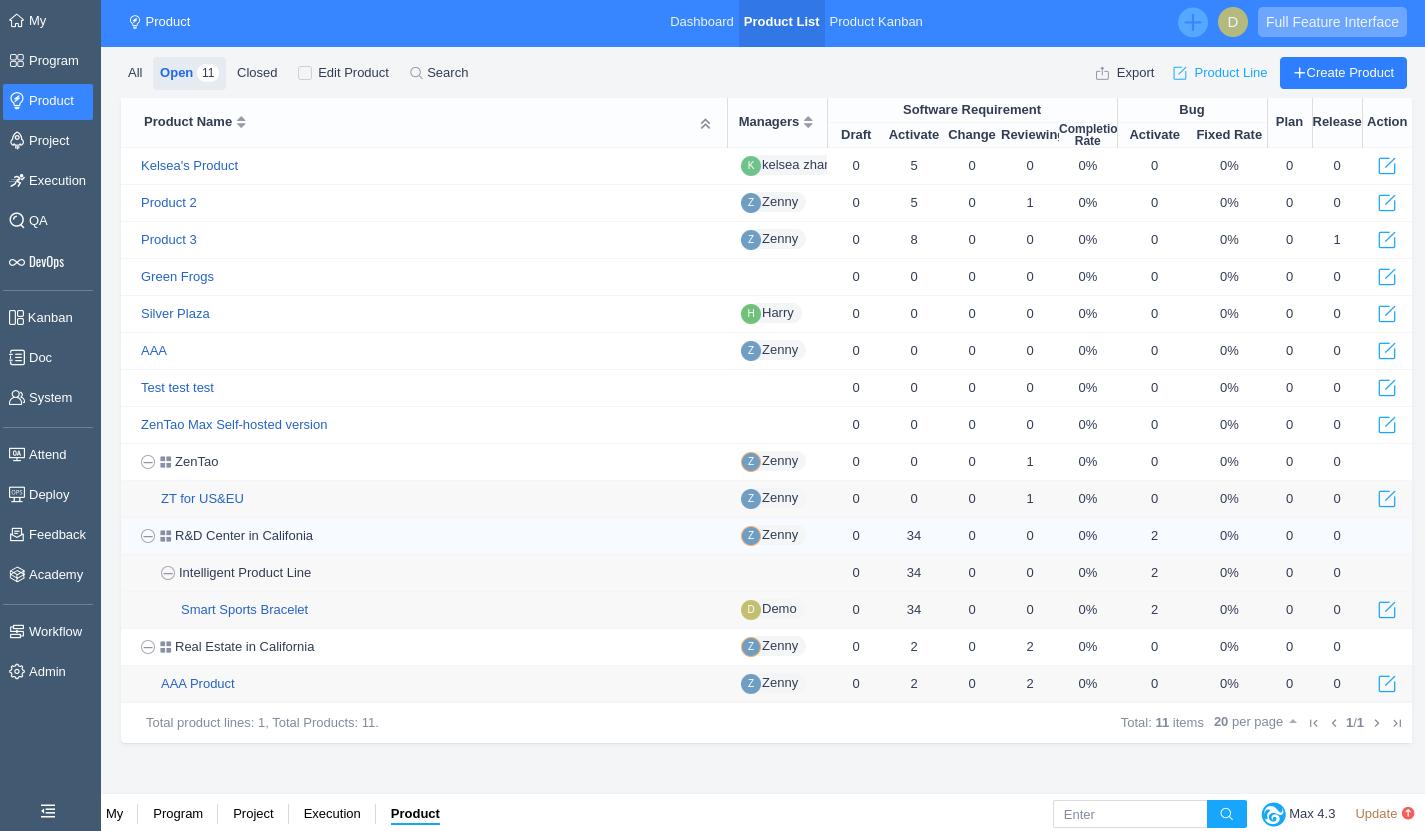
ZenTao is an open-source project management tool that stands out for its comprehensive approach to Agile project management. It integrates project management, bug tracking, and test case management into a single platform, making it an ideal choice for startups that follow Agile methodologies. ZenTao’s user-friendly interface allows teams to easily manage tasks, track progress, and collaborate effectively. Its flexibility and customization options make it suitable for startups of all sizes, ensuring that teams can adapt the tool to their specific workflows.
One of the key strengths of ZenTao is its robust bug-tracking system. Startups, especially those in the tech industry, often face challenges related to software bugs and defects. ZenTao’s bug-tracking feature allows teams to log, prioritize, and resolve issues efficiently, ensuring that the development process remains on track. Additionally, ZenTao’s test case management module helps teams plan and execute tests, ensuring that the final product meets quality standards. This combination of features makes ZenTao a powerful tool for startups looking to maintain high-quality deliverables.
Another advantage of ZenTao is its cost-effectiveness. As an open-source tool, ZenTao offers a free version that provides essential features for startups with limited budgets. For startups that require more advanced features, ZenTao also offers a paid version with additional functionalities. This flexibility makes ZenTao an attractive option for startups that need a reliable project management tool without breaking the bank. Overall, ZenTao’s comprehensive features, user-friendly interface, and affordability make it a top choice for startups.
Planview
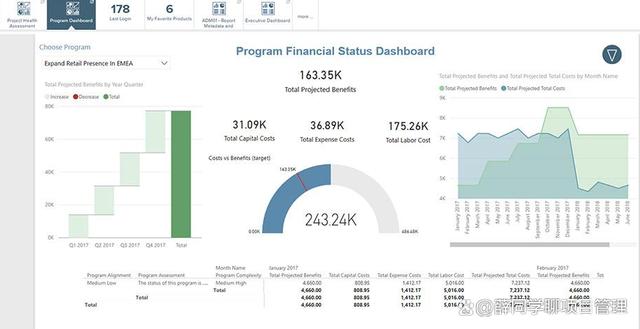
Planview is a versatile project management tool designed to help startups manage complex projects with ease. It offers a wide range of features, including project planning, resource management, and portfolio management, making it suitable for startups that handle multiple projects simultaneously. Planview’s intuitive interface allows teams to visualize project timelines, allocate resources effectively, and track progress in real-time. This level of visibility is crucial for startups that need to make informed decisions quickly.
One of the standout features of Planview is its resource management capabilities. Startups often operate with limited resources, and efficient resource allocation is critical to their success. Planview’s resource management tools enable startups to assign tasks based on team members’ availability and skill sets, ensuring that projects are completed on time and within budget. Additionally, Planview’s portfolio management feature allows startups to prioritize projects based on their strategic goals, helping them focus on initiatives that deliver the most value.
Planview also excels in its ability to integrate with other tools and platforms. Startups often use a variety of software tools for different purposes, and Planview’s integration capabilities ensure that teams can work seamlessly across different platforms. Whether it’s integrating with communication tools like Slack or syncing with financial software, Planview’s compatibility with other tools enhances its functionality. For startups looking for a comprehensive project management solution that can handle complex projects and integrate with other tools, Planview is an excellent choice.
Xebrio
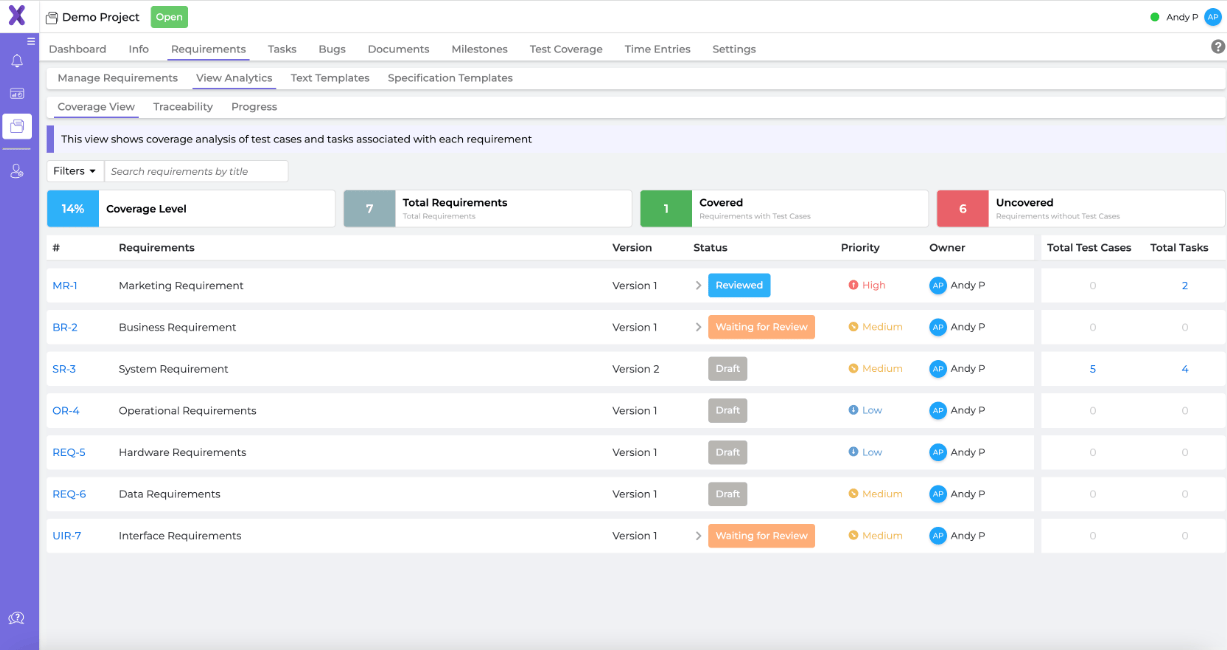
Xebrio is a project management tool that focuses on simplifying the project lifecycle for startups. It offers a range of features, including task management, time tracking, and collaboration tools, making it a one-stop solution for startups looking to streamline their workflows. Xebrio’s clean and intuitive interface ensures that teams can quickly get up to speed with the tool, reducing the learning curve and allowing them to focus on their work.
One of the key features of Xebrio is its task management capabilities. Startups often juggle multiple tasks and projects, and Xebrio’s task management tools help teams stay organized. Users can create tasks, assign them to team members, set deadlines, and track progress in real-time. Xebrio also offers a Kanban board view, which allows teams to visualize their tasks and workflows, making it easier to identify bottlenecks and prioritize tasks. This level of organization is essential for startups that need to manage their time and resources effectively.
Xebrio also stands out for its collaboration features. Startups thrive on teamwork, and Xebrio’s collaboration tools ensure that team members can communicate and work together seamlessly. The platform allows users to leave comments, share files, and collaborate on tasks in real-time. Additionally, Xebrio’s time tracking feature helps startups monitor the time spent on tasks, providing valuable insights into productivity and helping teams optimize their workflows. For startups looking for a simple yet powerful project management tool, Xebrio is a strong contender.
Trello
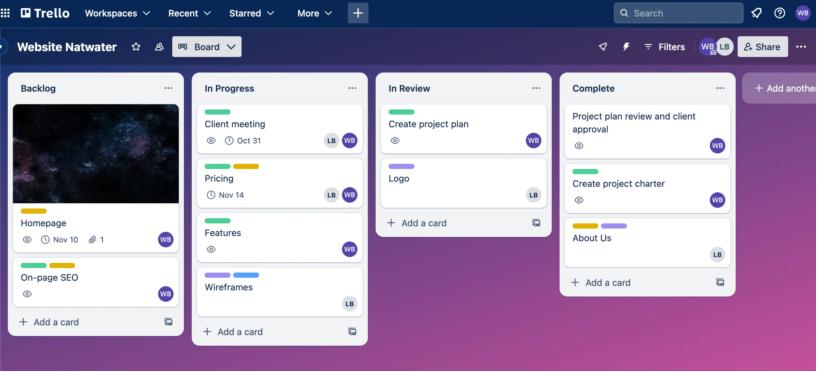
Trello is a popular project management tool known for its simplicity and visual approach to task management. It uses a card-based system that allows teams to organize tasks, track progress, and collaborate effectively. Trello’s drag-and-drop interface makes it easy for startups to manage their projects without the need for extensive training. Its flexibility and ease of use have made it a favorite among startups and small businesses.
One of the key advantages of Trello is its visual approach to project management. Each task is represented as a card, which can be moved across different lists to reflect its status. This visual representation makes it easy for teams to see the progress of their projects at a glance. Trello also allows users to add due dates, checklists, and attachments to each card, ensuring that all relevant information is easily accessible. This level of transparency is crucial for startups that need to stay on top of their tasks and deadlines.
Trello’s collaboration features are another reason why it’s a great choice for startups. Team members can comment on cards, mention each other, and share files, making it easy to communicate and collaborate on tasks. Trello also integrates with a wide range of third-party tools, including Slack, Google Drive, and Dropbox, allowing startups to create a customized workflow that suits their needs. For startups looking for a simple, visual, and collaborative project management tool, Trello is an excellent option.
Filestage
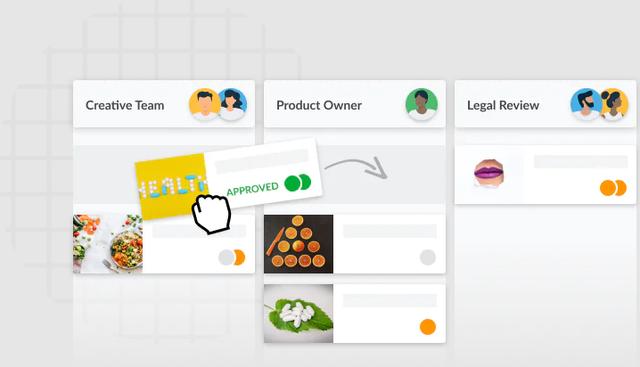
Filestage is a project management tool designed specifically for managing the review and approval process of creative assets. Startups that produce a lot of content, such as marketing materials, videos, or designs, will find Filestage particularly useful. The platform streamlines the feedback and approval process, ensuring that projects move forward without delays. Filestage’s focus on collaboration and feedback makes it an essential tool for startups in creative industries.
One of the standout features of Filestage is its ability to centralize feedback. Instead of relying on email chains or scattered comments, Filestage allows teams to gather feedback in one place. Users can upload files, share them with stakeholders, and collect feedback directly on the platform. This centralized approach reduces the risk of miscommunication and ensures that all feedback is documented and easy to access. For startups that need to manage multiple rounds of revisions, Filestage’s feedback management system is a game-changer.
Filestage also offers robust version control, which is crucial for startups that work on iterative projects. The platform automatically saves different versions of files, allowing teams to track changes and revert to previous versions if needed. This feature is particularly useful for creative projects where multiple iterations are common. Additionally, Filestage’s approval workflow ensures that all stakeholders sign off on the final version before it’s published, reducing the risk of errors. For startups that need to manage complex review and approval processes, Filestage is an invaluable tool.
Freshdesk
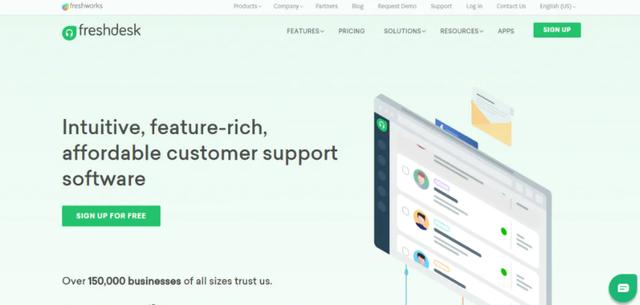
Freshdesk is a customer support and project management tool that helps startups manage customer inquiries and support tickets efficiently. While it’s primarily known as a customer support platform, Freshdesk also offers project management features that make it a versatile tool for startups. Its ability to integrate customer support with project management ensures that startups can provide excellent customer service while managing their internal projects effectively.
One of the key features of Freshdesk is its ticketing system, which allows startups to manage customer inquiries in an organized manner. Tickets can be assigned to specific team members, prioritized based on urgency, and tracked until resolution. This level of organization ensures that no customer inquiry falls through the cracks, which is crucial for startups that rely on customer satisfaction for growth. Freshdesk also offers automation features that can streamline repetitive tasks, such as assigning tickets or sending follow-up emails, saving time for the support team.
Freshdesk’s project management capabilities are another reason why it’s a great choice for startups. The platform allows teams to create tasks, set deadlines, and track progress, ensuring that internal projects are managed effectively. Freshdesk also offers collaboration tools, such as team inboxes and shared drafts, which make it easy for teams to work together on customer inquiries and internal projects. For startups that need to balance customer support with project management, Freshdesk is a comprehensive solution.
ClickUp
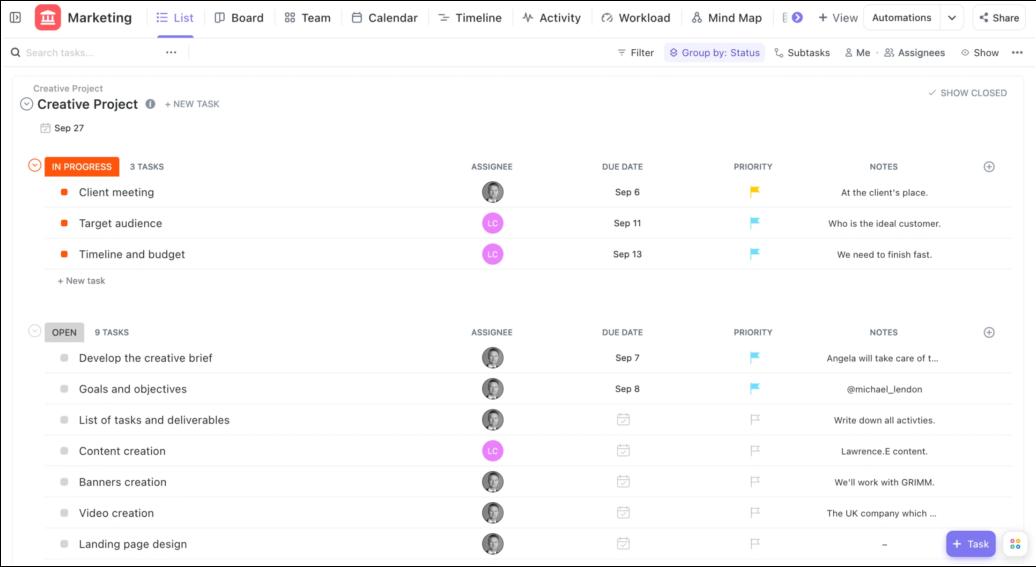
ClickUp is a highly customizable project management tool that offers a wide range of features to help startups manage their projects effectively. It combines task management, time tracking, and collaboration tools into a single platform, making it a versatile choice for startups. ClickUp’s flexibility allows teams to customize the platform to suit their specific workflows, ensuring that it can adapt to the unique needs of each startup.
One of the standout features of ClickUp is its task management capabilities. The platform allows users to create tasks, assign them to team members, set priorities, and track progress. ClickUp also offers multiple views, including list view, board view, and calendar view, allowing teams to visualize their tasks in a way that works best for them. This level of customization ensures that startups can manage their tasks in a way that aligns with their workflows and preferences.
ClickUp also excels in its collaboration features. The platform allows team members to comment on tasks, share files, and collaborate in real-time. ClickUp’s integration with other tools, such as Slack, Google Drive, and GitHub, further enhances its functionality, allowing startups to create a seamless workflow. Additionally, ClickUp’s time tracking feature helps startups monitor the time spent on tasks, providing valuable insights into productivity. For startups looking for a highly customizable and versatile project management tool, ClickUp is an excellent choice.
Paymo
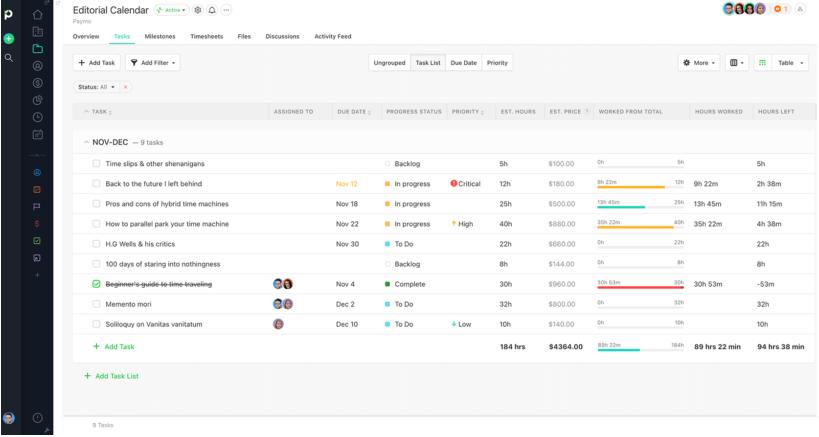
Paymo is a project management tool that combines task management, time tracking, and invoicing into a single platform. It’s an ideal choice for startups that need to manage their projects while keeping track of their finances. Paymo’s comprehensive features ensure that startups can manage their projects from start to finish, from planning and execution to billing and invoicing.
One of the key features of Paymo is its time tracking capabilities. Startups often need to track the time spent on tasks to ensure that projects stay on budget. Paymo’s time tracking tools allow teams to log their hours, track billable time, and generate timesheets. This level of visibility into time spent on tasks helps startups manage their resources effectively and ensures that they can bill clients accurately. Additionally, Paymo’s time tracking feature integrates with its task management tools, allowing teams to track time directly from their tasks.
Paymo’s invoicing feature is another reason why it’s a great choice for startups. The platform allows users to create and send invoices directly from the platform, making it easy to bill clients for completed work. Paymo also offers expense tracking, which helps startups keep track of their project-related expenses. This combination of project management and financial tools makes Paymo a comprehensive solution for startups that need to manage both their projects and their finances. For startups looking for a tool that combines project management with financial tracking, Paymo is an excellent option.
ProofHub
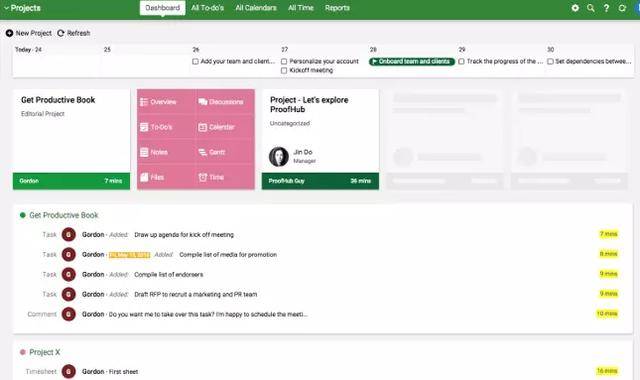
ProofHub is a project management tool that offers a wide range of features to help startups manage their projects effectively. It combines task management, time tracking, and collaboration tools into a single platform, making it a versatile choice for startups. ProofHub’s focus on simplicity and ease of use ensures that teams can quickly get up to speed with the tool, reducing the learning curve and allowing them to focus on their work.
One of the standout features of ProofHub is its task management capabilities. The platform allows users to create tasks, assign them to team members, set deadlines, and track progress. ProofHub also offers multiple views, including list view, board view, and Gantt chart view, allowing teams to visualize their tasks in a way that works best for them. This level of flexibility ensures that startups can manage their tasks in a way that aligns with their workflows and preferences.
ProofHub also excels in its collaboration features. The platform allows team members to comment on tasks, share files, and collaborate in real-time. ProofHub’s integration with other tools, such as Google Drive and Dropbox, further enhances its functionality, allowing startups to create a seamless workflow. Additionally, ProofHub’s time tracking feature helps startups monitor the time spent on tasks, providing valuable insights into productivity. For startups looking for a simple yet powerful project management tool, ProofHub is an excellent choice.
TeamGantt
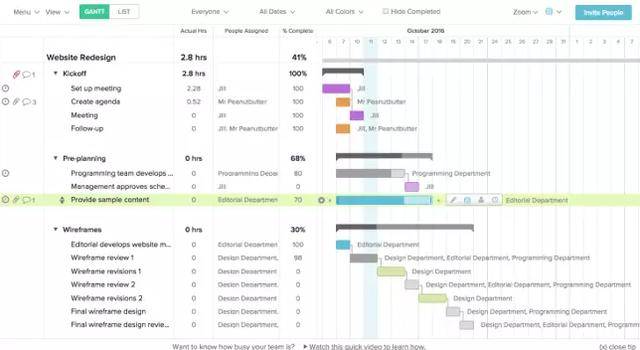
TeamGantt is a project management tool that focuses on visual project planning and scheduling. It’s an ideal choice for startups that need to manage complex projects with multiple dependencies. TeamGantt’s Gantt chart view allows teams to visualize their project timelines, track progress, and identify potential bottlenecks. This level of visibility is crucial for startups that need to manage their projects effectively and ensure that they stay on track.
One of the key features of TeamGantt is its Gantt chart view, which allows teams to visualize their project timelines in a clear and intuitive way. Users can create tasks, set dependencies, and track progress in real-time. TeamGantt also offers drag-and-drop functionality, making it easy to adjust timelines and reschedule tasks as needed. This level of flexibility ensures that startups can adapt their project plans to changing circumstances, ensuring that they can meet their deadlines.
TeamGantt also excels in its collaboration features. The platform allows team members to comment on tasks, share files, and collaborate in real-time. TeamGantt’s integration with other tools, such as Slack and Google Drive, further enhances its functionality, allowing startups to create a seamless workflow. Additionally, TeamGantt’s resource management tools help startups allocate resources effectively, ensuring that team members are not overburdened and that projects are completed on time. For startups looking for a visual and collaborative project management tool, TeamGantt is an excellent choice.
FAQ
1.What is the best project management tool for startups?
The best project management tool for startups depends on the specific needs of the team. For startups following Agile methodologies, ZenTao is an excellent choice. For those needing a visual and collaborative tool, Trello or TeamGantt may be more suitable. Startups should evaluate their workflows, team size, and project complexity before selecting a tool.
2.Are there free project management tools for startups?
Yes, many project management tools offer free versions with basic features. ZenTao, Trello, and ClickUp are examples of tools that provide free plans, making them ideal for startups with limited budgets. However, startups should consider upgrading to paid plans as their needs grow.
3.How do I choose the right project management tool for my startup?
To choose the right project management tool, startups should consider factors such as team size, project complexity, budget, and specific features needed (e.g., time tracking, collaboration, or resource management). It’s also helpful to take advantage of free trials to test the tool’s usability and compatibility with your team’s workflows.
ARTICLE TITLE :Recommendations for 10 essential project management software tools for startups ,AUTHOR :ITpmlib














